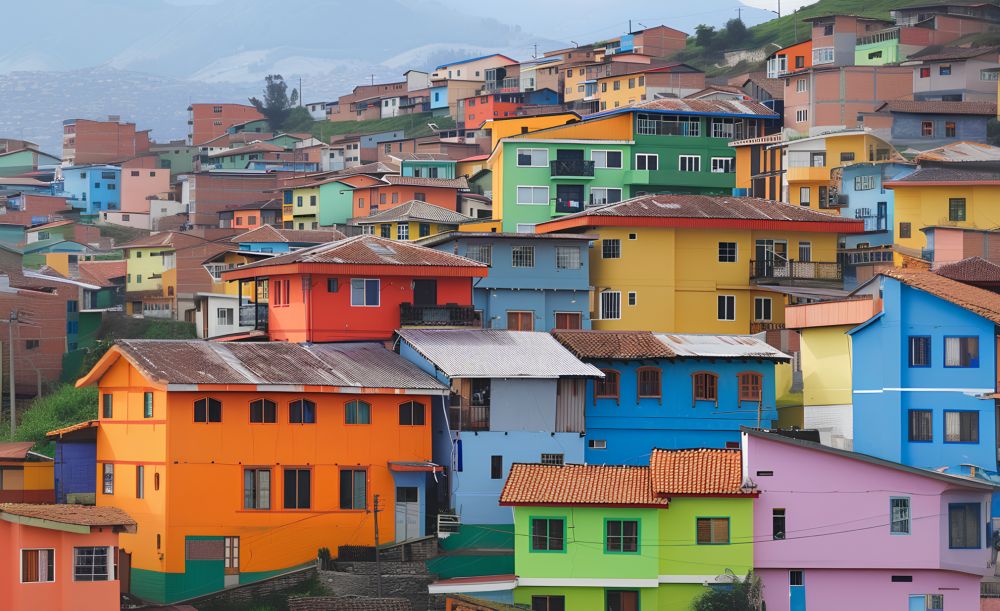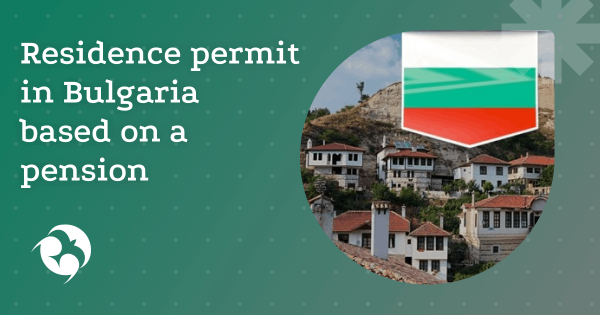In June 2022, the country announced the Rentista for Remote Work Visa and joined other South American nations that opened visa programs for foreigners. These programs are suitable for specialists and freelancers who wish to work remotely for companies or clients abroad. Now, instead of the 6 months allowed for tourists, expats can legally stay in the country for 2 years and extend their stay for the same period. Simple legalization makes the program even more accessible for nomadic relocators looking for a place under the sun.
Applicants from 183 countries on the government’s list, with a regular income of $1,410 per month, can apply for the rentista residency. Documents are accepted online through the Trámites en Línea government portal and the virtual consulate website.
Specifics of Ecuador’s Freelance Visa
The Minister of Tourism stated that the program’s conditions attract wealthy foreigners to the South American country for living and working. They invest in goods and products of local manufacturers, contributing to the development of small and medium-sized businesses. One of the country’s strategic goals is the further development of the digital ecosystem, accessible and useful services. The authorities believe that the exchange of experience between highly qualified IT professionals and local tech experts from professional communities will help in this. For them, in Quito, the world’s second-highest capital, an infrastructure with convenient coworking spaces has been created.
Entrepreneurs, company owners, and self-employed individuals with families who work under contracts with legal or private entities also qualify for the digital nomad visa. Temporary residency opens the path to opening bank accounts, tax benefits, and social perks.
Conditions and requirements in 2024:
- Contracts for self-employed remote cooperation for 2 years;
- Notarized and apostilled copies of work contracts;
- Criminal record certificate;
- Bank statement for the last 3 months showing cash flow.
How Much Does the Visa Cost
The Digital Nomad visa costs $400, with a $50 application fee. For people over 65, the fee is reduced by 50%. The cost of an annual health insurance policy is $45 per person. For individuals with disabilities, the Ministry of Health of Ecuador has waived all fees with a disability card. Relocators pay separately for translation and notary services, which cost around $100.
What Taxes Does a Freelancer Pay
Tax laws are regulated by the SRI service. The maximum income tax rate in the country is 35%, while the minimum is 25%.
Tax table for digital nomads, freelancers, self-employed and sole proprietors
| Tax name | The amount of tax | Note |
| Income Tax (IR) | 0% (for Digital Nomad) 5-35% (progressive scale for residents) |
Digital nomads with a Digital Nomad visa are exempt from foreign income tax. Residents (accommodation for more than 183 days) pay on a progressive scale: up to $11,310 – 5%, $11,311–$28,830 – 10%, over $28,830 – up to 35% |
| Value added tax (VAT) | 12% (standard rate) | Mandatory for sole proprietors and companies with a turnover of more than $300,000/year. Digital nomads without business registration are exempt. 0% is applied for the export of services. |
| Social Contributions (IESS) | 20.5% of income (9.45% – employee, 11.15% – employer) | Mandatory for registered sole proprietors and the self-employed. No fees are charged for Digital Nomad program participants if the income is earned outside of Ecuador. |
| Corporate Income Tax (CIT) | 25% | For legal entities (S.A., Ltda.). It does not apply to individual entrepreneurs and freelancers in simplified modes. |
| Tax on dividends | 0% (for residents) 10% (for non-residents) |
Residents of Ecuador do not pay tax on dividends. For non–residents, the rate is 10%. |
| Single tax for Small Businesses (RISE) | $25–$100/ month | Available for sole proprietors with an annual turnover of over $300,000. Includes all taxes except VAT. It does not apply to freelancers who provide services to foreign clients. |
Required documents and conditions
All types of permits, including the Professional Visa, are issued electronically. Before applying, foreign citizens must translate official papers into Spanish and have them apostilled. The document package must include:
- A passport valid for at least 6 months;
- Contract, agreement for services, or other activities;
- Criminal record document;
- Health insurance policy;
- Proof of relationship with dependents if relocating with family.
In the case of family relocation, $250 is added for each dependent, or proof of having an amount equivalent to 36 Ecuadorian salaries in the account for a year must be provided.
Applicants provide personal contact details for communication with the immigration service and payment authorization. Documents in PDF format are uploaded to the consulate’s website after creating an account. Then they schedule an interview, wait for a payment number, and attend the interview with their document folder. The processing time takes up to 2 months. Those who are rejected can enter the country on a tourist visa and resubmit the application, considering immigration requirements.

- We will answer all your questions
- We will help you choose the best option
- We will guide you through every step or do everything for you
Recent Changes in Ecuador’s Visa Policy
In June 2024, to improve service and processing speed, the authorities introduced a new system for obtaining electronic visas and apostilles. The innovations simplify the application process, eliminating the need for personal visits to consulates and regional offices. The General Coordinator of Ecuador’s Ministry of Foreign Affairs stated that centralizing legal procedures through an IT system in Quito will allow for faster processing of applications without creating waiting lists. The Foreign Minister recently confirmed that, as of July, the DTV visa processing time has been halved.
Changes to digital nomad visas have also appeared in the visa policies of many countries. For example, Thailand introduced a digital nomad visa for the first time this year.
Frequently Asked Questions
The full cycle from the submission of documents to the issuance of a visa is from 2 to 4 months. This period includes the following stages.
- Preparation of documents (1-3 weeks): collection, apostille, and transfer of papers, including an employment contract, a criminal record certificate, and bank statements.
- Online application submission (up to 3 weeks): register on the Virtual Consult platform, upload documents and pay the $50 fee.
- Application review (1-2 months): verification by the migration service.
- Obtaining a visa (1-20 days after approval): issuing an electronic permit and paying the final fee of $400.
The program allows a one–time extension for 2 years, subject to the conditions – confirmation of income for the last 12 months and the absence of violations of migration legislation. The application is submitted 60 days before the expiration date of the current visa. The renewal process takes 4-6 weeks. Deadlines may increase if there are errors in the documents or the consulates are overloaded.
If extended for a second two-year period, a repeated visa fee ($400), insurance renewal ($45/year), and notarization of new income statements ($50-80) will be charged.
The passport must be valid for at least 6 months at the time of application, be in good condition (without damage), contain at least 2 blank pages for visas, and be submitted together with a copy of the main pages.
An employment contract for a digital nomad visa must be concluded with a foreign employer, provide for a remote work format, have a validity period of at least 2 years, indicate a salary of at least 3 minimum wage of Ecuador (about $1,410 for 2025), be notarized and apostilled.
It is necessary to provide bank statements showing a monthly income of at least $ 1,410 (3 minimum wage of Ecuador for 2025), the statement must cover the last 3 months before applying, for each additional family member it is required to show an additional income of $ 250. The statements must be official and contain the seal of the bank.
The certificate of non-criminal record must be issued in the applicant’s country of citizenship, have an apostille, contain a notarized translation into Spanish, be valid (valid for no more than 180 days from the date of issue until the last entry into Ecuador), and confirm the absence of criminal records for the last 5 years.
Medical insurance must cover the entire period of stay (2 years), include basic medical care, and have international coverage. Insurance can be obtained both in the country of origin and in Ecuador (the cost is approximately $45 per year per person).
To include family members in the visa application, you must additionally provide a marriage certificate (original with apostille) for the spouse, birth certificate for children under 18 (original with apostille), health insurance for each family member, proof of additional income (+$250 for each dependent family member).
The following documents require apostillation: an employment contract, a certificate of non-conviction from the country of citizenship, a marriage certificate (if there is a spouse), a birth certificate for children (for minor children).
Non–criminal record certificate – up to 180 days from the date of issue until the last entry into Ecuador. Bank statements – must cover the last 3 months before submission. Medical insurance is required for the entire period of validity of the visa (2 years). The employment contract must be current at the time of submission (valid for at least 2 years). The apostille on the documents does not have an expiration date, but it is better to translate it into Spanish immediately before submitting it.
The process of apostille and translation depends on the country of origin of the Apostille – 5-7 working days. A notarized translation takes 2-3 days per document. Consular legalization (if required) – up to 14 days. For an employment contract in the Russian Federation, the apostille is placed on a notarized copy, which adds 1-2 days to the deadline.
The visa is activated from the moment of the first entry. There are no restrictions on the date of entry, but it is recommended to enter within 6 months after approval in order to avoid questions when applying for a sedula (internal passport).
Upon arrival in Ecuador, you may need a certificate of entry and exit from Ecuador (issued at the migration department, the cost is about $5.6), documents for obtaining an internal passport of Ecuador (sedula) after obtaining a visa (the cost is about $5).
After arrival in Ecuador, the certificate of entry and exit is issued at the migration department 1-2 days in advance. Submission of documents for a residence permit takes 3-5 business days. ID-card production takes up to 10 working days. The total period for legalizing the status in the country is 2-3 weeks.
Errors in the employment contract are the absence of an indication of the minimum wage ($1,410) or the expiration date. Overdue certificate of non–criminal record – the document must cover the period before the application is submitted. Incomplete package of documents – for example, the lack of translation of the marriage certificate for dependent family members. Delays at consulates – during peak seasons, the review period may increase to 3 months.
No. The 2-year period starts from the date of the first entry into Ecuador indicated on the visa.
The addition of dependent persons does not affect the total processing time of the application, but requires an additional 1-2 days for the preparation of documents (marriage/birth certificates with apostille) and an increase in confirmed income by $250/month per person. Dependent persons receive visas at the same time as the main applicant, if all documents are submitted in a single package.
Mandatory payments include an application fee ($50), a final visa fee ($400), an entry/exit certificate ($5.6), and an ID card ($5). A 50% discount on the visa fee is provided for persons over 65 years of age.
Costs of legalization and transfer. Apostillation of a notarized copy of the employment contract – $50-100. Notarized translation of documents into Spanish costs $20-30 per page. Criminal record certificate – $70-120 (including apostille and translation). A 2-year insurance policy will cost $45/year per person when applying in Ecuador.
Yes, it is possible, but the process requires certain conditions to be met.
- Obtaining a temporary residence. Digital Nomad Visa provides a temporary residence permit for a period of 2 years, which can be extended for another 2 years if all requirements are met.
- Permanent residence. After 21 months of residence in Ecuador, you can apply for a permanent residence permit (permanent residence) on a nomad visa.
- Citizenship. 3 years after obtaining permanent residence (or 5 years after first entering Ecuador), you can apply for the status.











